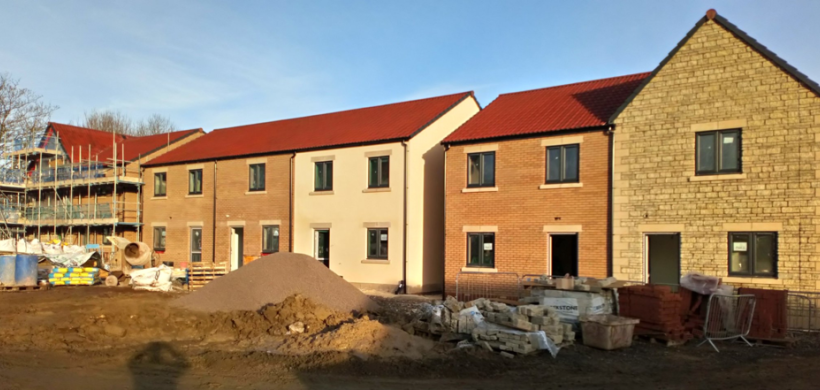We started work on the development, which spans two sites, in 2016 after being granted planning permission by South Gloucestershire Council.
The first site is set to be completed before Easter, which will provide eight flats and 12 houses for affordable rent. It has been called Cable Close.
The entire scheme will deliver 58 affordable homes by the end of 2019, with 27 allocated for shared ownership and 31 for affordable rent.
LiveWest Development Manager Chris Dawson said: “We are delighted that the first site is nearing completion having gone really smoothly.
“We are proud to be making a difference by improving the affordable housing market in an area where locals are being increasingly priced out of purchasing homes.
“The new houses and flats will mean more local people can remain in the village instead of being forced to look for cheaper accommodation elsewhere.
“We are also pleased to be contributing to the area’s history by enhancing the neighbouring grade II listed World War II balloon tethering as part of the development.”
The larger site, called The Moorings, will be completed by the end of the year and will provide 38 units – 11 for rent and 27 for shared ownership.
Pucklechurch is an attractive, historic village with post-war development which includes a mixture of residential styles built between the 16th and 19th centuries.
Councillor Erica Williams, South Gloucestershire Council Cabinet Member for Housing Delivery and Public Health, said: “I am delighted to hear that these new, affordable homes are nearing completion in Pucklechurch.
“We have had a very positive partnership with LiveWest and this is an excellent use of former council land because it is continuing to make a positive contribution to the community.
“The Council has also provided around £400,000 from the Housing Enabling Developer Contributions fund to this project.
“With a growing population, we need new homes. While the discussion about housebuilding is often centred on towns and cities, it is really important to deliver them, sensitively, right across the district.
“Rural locations need affordable homes so the next generations can stay in or move to these communities and contribute to the countryside economy, allowing them to renew and to be sustainable.”
